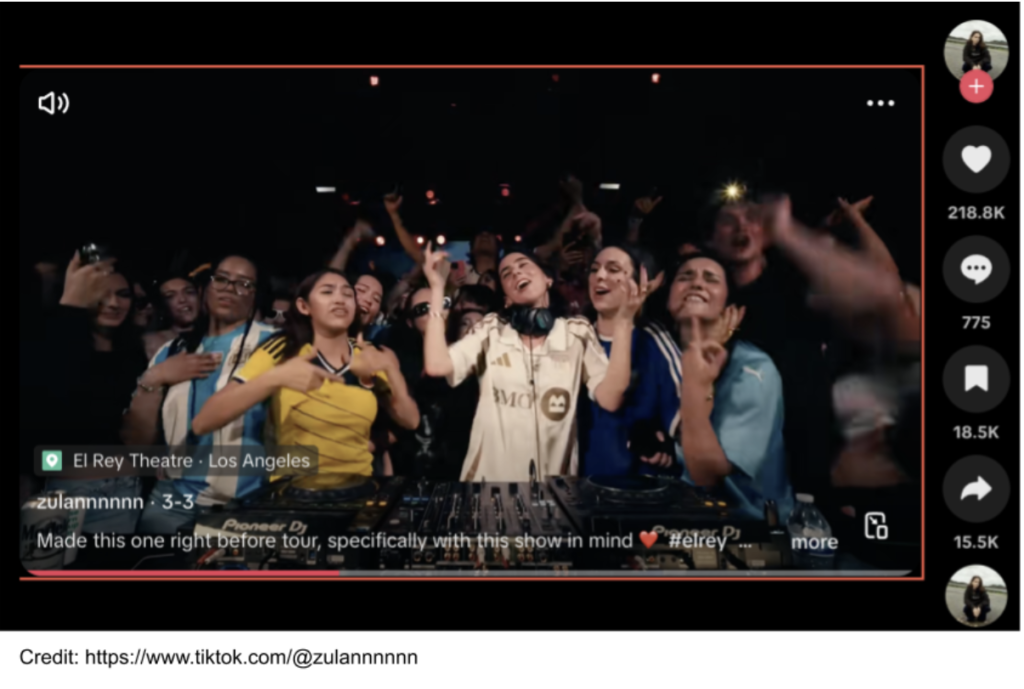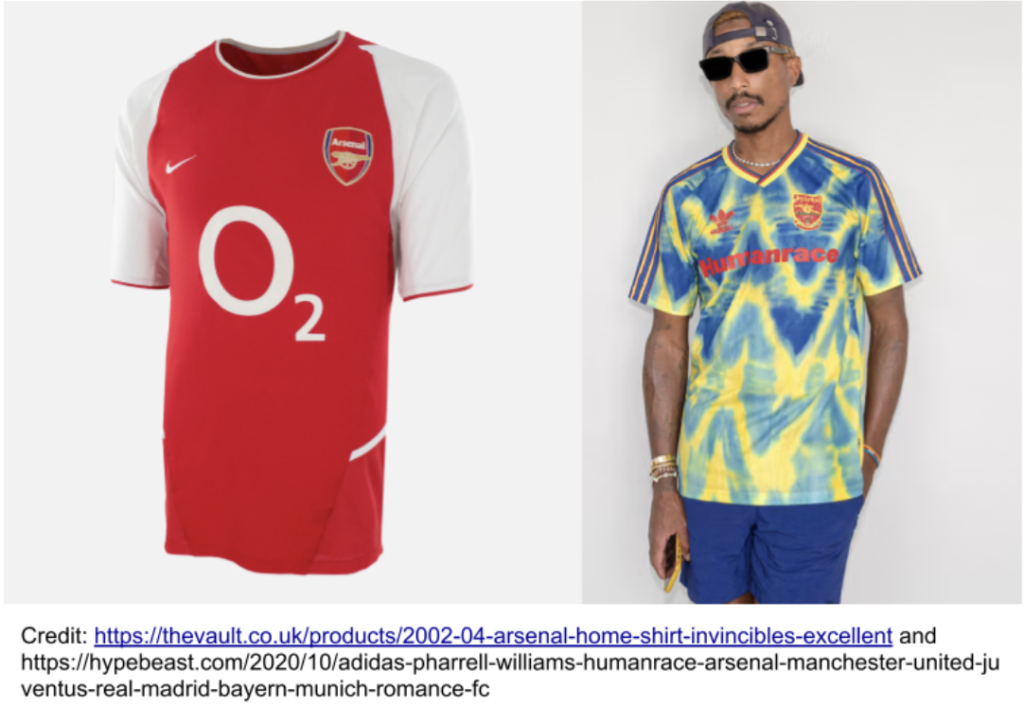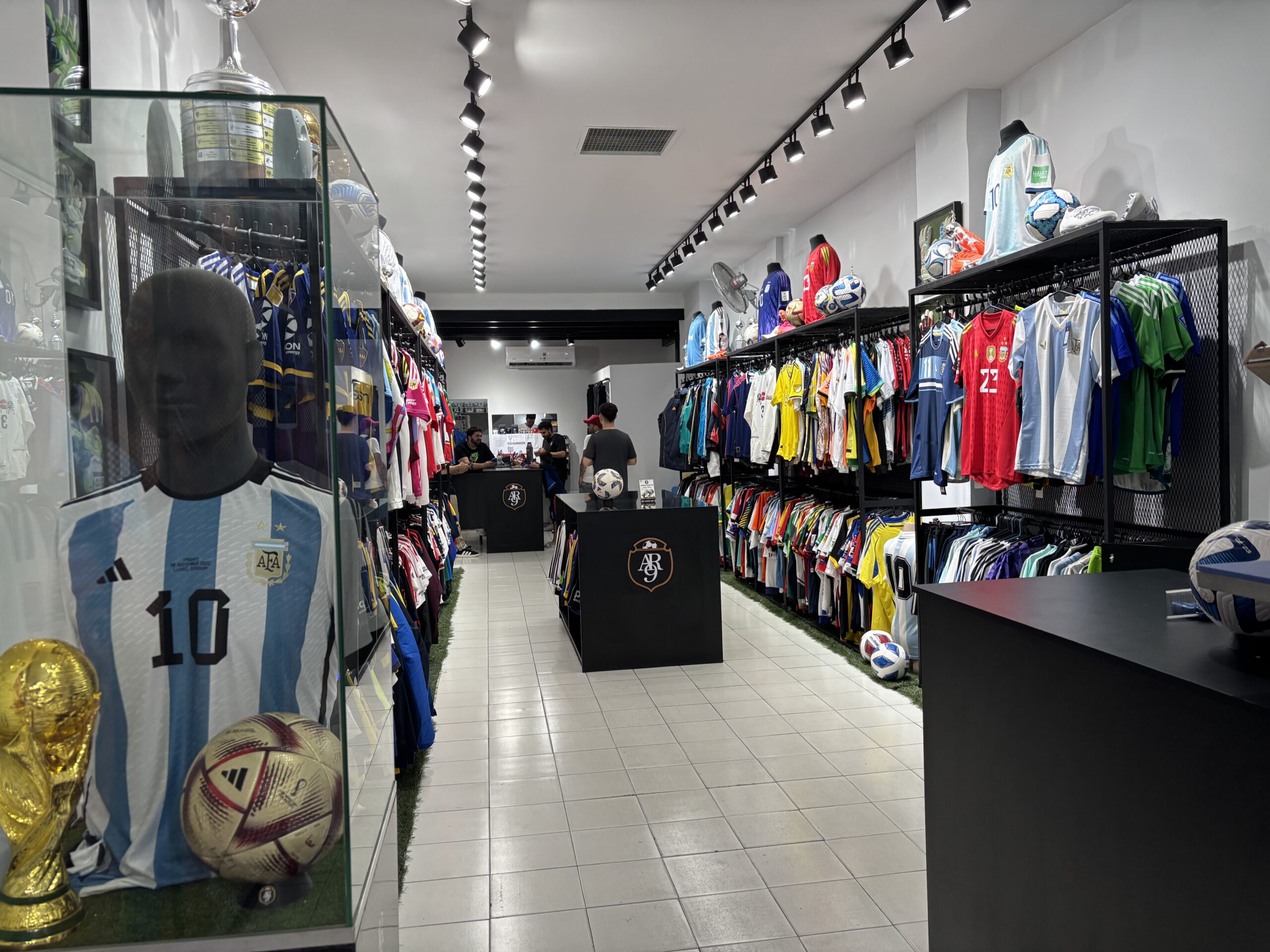In a viral TikTok video, Zulan, an Argentine DJ and music producer, turned Clairo’s “4ever” into a pulsating house beat for a dancing and sweaty crowd in Los Angeles. She created the mix “with the LA show in mind,” noted the caption. For this LA show, Zulan donned Los Angeles Football Club’s “simple yet utterly stunning” white and gold secondary away jersey for the upcoming 2025 Major League Soccer season.
Over the past year, Zulan has attracted more than 400,000 followers and more than 14 million “likes” on her videos where, in most, she wears a soccer jersey from the hometown team of the city where she’s performing.

Zulan is among the growing number of celebrities who blend soccer jerseys and soccer culture into their image. Drake famously wore Italian club Juventus’ 2015-16 pink away jersey, creating much hype from his fans. British rappers Dave and AJ Tracey produced and wrote “Thiago Silva,” a tribute to the international Brazilian defender who has played for some of the most well-known teams in the world.
Jerseys have long been a popular way for fans to showcase their love for their soccer teams.
“Sports seem to have a built-in advantage of their product offering a lived-in experience,” said Mike Krings of the University of Kansas, who reported on a study by Zach Scola and Brian Gordon about nostalgia in sports. “Whether teams roll out retro marketing when they are losing or to celebrate past glories, it’s all over the field and uniform of many sports.”
Scola and Gordon found “prominent themes explaining how retro marketing is implemented” by celebrating past achievements and players that had made a mark on the fan culture.
Dubbed “Blokecore,” the cultural movement has been defined as donning “vintage replica football tops, baggy or straight-leg jeans (often Levi’s) and mainly Adidas trainers,” by Vice’s social media consultant, Georgia Aldridge. The hashtag has been used on over 40,000 posts on TikTok, and videos have received hundreds of thousands of views.
Ignacio Garcia, Mexican soccer fan and New York University junior, has a collection of London team Arsenal’s jerseys ranging from the famous O2 red jersey from the 2003/04 Invincible season to the 2020 limited edition famous bruised banana jersey that Adidas collaborated on with singer and producer Pharrell Williams’ Humanrace brand, a remake of the classic bruised banana jersey from the 1991-93 seasons.

“For me, jerseys have always been associated with casual streetwear, and with the onset of a larger street culture, I feel it is now developing as a massive fashion movement,” said Garcia. “A lot of jerseys like Arsenal’s famous bruised banana jersey are well-designed, making them desirable even in an average day-to-day setting.”
Despite its name, the fashion trend is not just limited to blokes. Female fashion influencers on TikTok have coined the term “#blokettecore” as well, matching oversized vintage jerseys with simpler pieces such as a long white skirt, jean shorts, or another piece of nostalgic clothing — bell-bottom jeans.

Popstar Sabrina Carpenter got in on the act as well, wearing various cities’ soccer jerseys where she performed during her “Short n’ Sweet” world tour in 2024 — inadvertently starting a jinx after she wore the England national team’s shirt during the Euros 2024 during a set in London. The English subsequently lost the final 2-1 to Spain. Despite the curse, it inspired her to release her own Short n’ Sweet soccer jersey that includes three stripes seemingly inspired by Adidas’s signature design along its shoulders.
Most soccer fans have been collecting jerseys of their favorite team or their national team since they started supporting them, and since jersey manufacturers like Nike and Adidas stop making them after a given season, they become limited.
The rarity appeals to many, as owning a recognizable jersey, such as the 1998-2000 Brazil national team jersey, can set a buyer back £350, or roughly $450, on the website Vintage Football Shirts.com. Legends of the game like Ronaldo Nazario — R9 as he is known, not to be confused with the Portuguese Cristiano Ronaldo, as well as Ronaldinho and Roberto Carlos, have worn this shirt during memorable seasons.
“Retro jerseys represent a nostalgic, simpler era of football that many fans long for,” said New York University sophomore Krish Dev, an Arsenal fan and a soccer jersey enthusiast.
This writer still owns the first jersey he ever received — a 2007-08 Manchester United jersey — partly due to sentimental value, but also because it was the last time the English club won the European Champions League. His aunt had bought it for him from a visit to the UK for £50 — roughly £85 today, or $110, and the same jersey now goes for £175, $226, on Vintage Football Shirts.com today.
“For me, retro jerseys are a way to document where I am from and where I have traveled,” said Garcia. “I often collect shirts from local national teams or clubs, plus it is a really great way to track my experiences.”
